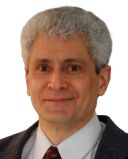Guilt
Doctors and Guilt
Guilt can promote the choice of a medical career, and make it more difficult.
Posted June 9, 2019 Reviewed by Gary Drevitch

Dr. A could never leave the hospital at a reasonable hour; something else always needed to be done. Dr. B worried so constantly about his patients that he never enjoyed a weekend. Dr. C, despite the breadth of knowledge and superb clinical judgment that made her a favored consultant for her colleagues, always felt like an impostor. Dr. D, a surgeon with a well-deserved stellar reputation, constantly agonized that he must have caused post-operative complications in his patients, even when they were recovering uneventfully.
Practicing medicine is difficult, challenging work, but these doctors share the tendency to extract more pain and suffering from their work than is necessary. Many years of observing and treating doctors and other members of the helping professions, have shown me that this need to suffer usually results from efforts to deal with unconscious guilt. (More complete thoughts on this subject can be found in an essay of mine recently published in JAMA Internal Medicine.)
There exist a small number of doctors who are negligent, uncaring, or exploitative of patients; I’ve never been consulted by one. I don’t know if those doctors feel guilty, but it would be appropriate. Many excellent, responsible, caring doctors, however, have long-term struggles with large amounts of inappropriate, irrational guilt. One way to deal with such guilt is to try to appease one’s conscience by doing good deeds. Thus, difficulties with guilt can contribute to the choice of a helping profession as a career. Guilt has some adaptive advantages for doctors: It promotes respect for others, empathy, scrupulousness, and hard work. However, we also see evidence of maladaptive aspects in many medical students and doctors. They are prone to exert undue pressure on themselves, be excessively self-critical, and often, to worry constantly.
Where does the excess guilt come from? In my experience, this is highly variable – childhood provides many opportunities. Young children are powerfully wishful and have little cognitive capacity, so many standard childhood wishes, such as getting rid of one’s siblings, obtaining sole possession of one or both parents, or killing one’s rivals of any sort, can leave a residue of guilt that can become important later. Residual guilt from childhood will be stronger when it has been magnified by one or another common reality—for instance, a sick or depressed parent, a death in the family, divorce, violence or abuse, alcoholism, childhood illness, etc. Early experience can leave conflicts over guilty feelings that are dormant for many years but then aroused when challenged by the demands, responsibilities, and accomplishments of adulthood. The practice of medicine is just such a challenge, especially because internal struggles with guilt can promote the choice of medicine as a career, and medical practice can then amplify them.
In addition to diminishing guilt by doing good deeds, guilt can be appeased with punishments. Medicine provides many opportunities for turning difficult experiences into punishment. For example, many doctors habitually blame themselves, even when they know that a patient’s death was due to implacable illness. Doctors have often accepted punishingly frequent on-call schedules, just as they frequently tolerate, with little collective protest, the painful abuses of managed-care reviewers. Even when there aren’t major problems, some doctors will continually worry about their patients. These worries may be difficult for the doctor to distinguish from thinking about how best to care for the patient, but on careful examination, the worries are usually not thoughtful considerations of disease management but persistent self-tortures.
The extent to which the punishment is extracted from the environment according to doctors’ own psychological inclinations, as opposed to externally inflicted, can be difficult to discern, and the internal contributions are readily missed. Here’s another example of the difficulty of telling what’s internal versus external: A medical student assumes that if she asks for an hour off from a rotation to attend a therapy session her resident will be critical of her for missing time on service. Occasionally this is correct. Frequently, however, it is a projection of the student’s own self-criticism onto the resident, who more often is generous toward the student.
This ease with which external difficulties help to disguise internal ones may be one reason that doctors’ frequent struggles with guilt have been overlooked in the medical literature. Excellent physician-authors who have written about the experience of being a doctor, such as Jerome Groopman, in How Doctors Think, and Danielle Ofri, in What Doctors Feel, have said almost nothing about it.
Why does this matter? Medicine faces a substantial burden of physician burnout, depression, and suicide. Yet even in the literature on physician burnout, depression, and suicide, references to guilt, or to conflicts in physicians’ minds, remain rare. The literature has focused almost exclusively on external factors such as long work hours, time-wasting electronic medical records, decreased prestige of doctors, and intrusive managed care and insurance practices. These are important matters, but only part of the problem. Unless doctors are also encouraged to understand why they chose medicine, how they experience it, and how, when, and why they draw punishment from it, efforts to address the problems of burnout, depression, and suicide will remain incomplete and fail to help many physicians.
What would help? I would prescribe opportunities for doctors to discuss with each other the experience of being a doctor, including the chance to discuss problematic cases in as candid and personal a way as possible. Even more important, medical students and doctors should have ready access to a broad range of psychiatric and psychological care; for most doctors insight-oriented psychotherapy would be most appropriate. We should have a culture that supports these measures. Anxiety about what goes on in the mind has contributed to a longstanding condescension toward psychiatry in other branches of medicine, and the traditional medical focus on the body provides a ready diversion from focus on the mind, so a culture that supports respect for the mind, and easy access to psychotherapy, will not be quickly achieved. But it’s a goal worth striving for.
References




